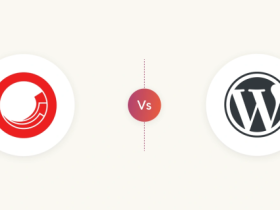Selecting the right PR partner when expanding into Eastern Europe can determine the success or failure of your entire market entry strategy. Without the guidance of a local expert, companies often face cultural, linguistic, and legal barriers.
A local PR agency isn’t just a service provider—it’s a strategic advisor who understands the region, the media, and the consumer landscape.
Such a partner helps align global objectives with local realities, build credibility, and protect a company’s reputation during challenging times. The markets of Central and Eastern Europe (CEE) are growing rapidly, particularly in the e-commerce sector, driven by increasing internet access and consumer trust in online shopping. In this dynamic environment, a strong PR partner is invaluable.
A holistic approach to communication—including social media management in Poland and across the region—is essential for building authentic relationships with local communities.
Expansion into Eastern Europe: Planning and Understanding Local Conditions
Expanding into diverse markets like those in Eastern Europe requires careful planning and an understanding of local dynamics. As Paweł Bilczyński observed, “Too many decisions about entering new markets are based on intuition rather than strategy.”
The experience of the Impel Group, which achieved its most significant international success in Latvia and Ukraine, demonstrates that thoughtful strategy and the right partnerships are crucial.
A PR agency capable of operating across different legal systems, cultural contexts, and communication styles helps companies avoid costly mistakes and supports sustainable growth.
What Is a PR Partner and Why Are They Essential for Eastern European Expansion?
A PR partner is far more than a media liaison. In new markets, they act as a guide and cultural interpreter. In regions where cultural, political, and economic differences are pronounced, their role becomes even more important. They shape your image, connect your brand to local stakeholders, understand linguistic nuances, and navigate the complex media landscape.
Markets such as the Czech Republic, Slovakia, Hungary, Romania, or Ukraine are developing quickly—but each has its own customs and expectations. As Agnieszka Haponik said when discussing 2025 market trends: “Every country has its own way of doing things.”
A PR partner who understands these nuances can tailor your communication so that it feels natural and credible to local audiences—laying the foundation for long-term success.
The Role of a PR Partner in Building a Brand Image
When entering a new market, a brand often starts from scratch. Building awareness and reputation requires sensitivity and precision. A PR partner serves as a “cultural translator”, helping you understand how your company’s values and message will be perceived by local media and consumers. This helps prevent missteps and builds an image rooted in trust and authenticity.
A strong PR partner not only creates positive media narratives but also anticipates risks and responds swiftly to crises. They adapt messaging to local contexts, protecting your reputation when challenges arise.
For companies planning to expand into Poland or other Central and Eastern European markets, collaborating with experienced local agencies can make all the difference. Agencies such as All4Comms specialise in supporting international brands with tailored PR and communication strategies that resonate with Polish audiences and deliver measurable results.
The example of Dr. Irena Eris, a Polish cosmetics brand now present in over 40 markets—including Central and Eastern Europe and the Middle East—shows how consistency and effective cross-cultural collaboration contribute to sustainable international growth.
The Importance of Local Communication in Eastern Europe
Local communication is much more than translation. It’s about understanding local moods, preferences, and communication channels. Eastern Europe is linguistically and culturally diverse; what works in one country can fail—or even offend—in another. A partner with a local team ensures that your message is relevant, comprehensible, and effective.
Local agencies typically have extensive networks among journalists, influencers, and opinion leaders. These relationships accelerate brand recognition and trust.
Just as cooperation with local business partners is essential in many Arab countries, personal relationships and trust are highly valued in Eastern Europe. Companies that combine global standards with local agility tend to achieve better results—showing the importance of culturally attuned communication.
What Skills Should a PR Partner in Eastern Europe Have?
Selecting a PR agency in this region requires a careful evaluation of capabilities—not just general communication skills but a deep understanding of local markets. The smallest details often determine whether your brand thrives or struggles.
Eastern Europe is not a monolithic market. It comprises multiple cultures, languages, and media systems. Success in one country doesn’t automatically translate to another. The Impel Group’s experience shows that a local partner who truly feels their market is often the missing piece of the puzzle.
Industry Experience and Local Market Knowledge
Experience is everything. Look for a partner with a proven track record in your sector and within the specific countries you plan to enter. Knowledge of local media, audiences, and trends is key. It’s not only about language—it’s about cultural context.
Ask for case studies and regional references. Check whether the agency adapts strategies to local conditions or simply applies global templates. As IdoSell reminds us, cross-border expansion is not a translation plugin—it’s a mindset.
Executives responsible for market development should know the basics of local regulations, history, and key dates—just as Ursus demonstrated in its international expansion.
Media and Influencer Network
A robust network of contacts is a major advantage. In Eastern Europe, personal relationships often matter more than in Western business culture. Access to influential journalists, editors, influencers, and thought leaders can dramatically speed up market entry.
Ask for examples of campaigns where the agency secured meaningful coverage or collaborations. The ability to build relationships is as important as creating great content. In this region, local partners often hold the key to social acceptance of a brand’s presence.
Crisis Management Skills in International Settings
Entering a new market always involves risk. Crises can emerge suddenly. Choose a partner experienced in multi-country operations—one who can assess a situation quickly, prepare a plan, and implement it across multiple languages and legal systems.
In a region where socio-political conditions can shift rapidly, the ability to anticipate and mitigate risks is invaluable. In 2025, foreign investment flows are increasingly shaped by geopolitics, technology, and new supply chains—requiring PR teams to be flexible and crisis-ready.
What to Check When Choosing a PR Partner in Eastern Europe

Don’t rely on first impressions. Investigate the agency’s background, work style, and collaboration approach. In this region, business and cultural differences can be significant—so thorough vetting is critical.
A good PR partner is an investment in your brand’s future. Mistakes at the start are the most expensive. Take the time to review candidates carefully. As Paweł Fornalski put it: “Expansion should be driven by economics, not ambition.” Choosing your agency wisely fits perfectly into that logic.
References and Portfolio
Start by checking the agency’s portfolio and references. Have they worked with companies similar to yours? Have they run campaigns specifically in Eastern European markets, not just global ones? Ask for concrete examples with measurable results.
Contact previous clients. Ask about communication quality, reliability, and responsiveness in challenging situations. Pay attention to how the agency adapted as client needs evolved. Real success depends on teamwork—and client feedback will reveal how well they collaborate.
Transparency in Services and Billing
Clarity builds trust. Before signing a contract, define the exact scope of services, performance metrics, and fees. Avoid vague “packages” with hidden costs. A professional agency will tailor a plan to your goals and budget.
Ask about reporting methods and ROI measurement. In regions where business standards may vary, it’s vital to know exactly what you’re paying for. Transparency simplifies budgeting and ensures smooth cooperation.
Adapting Strategy to Each Market’s Specifics
Every country has its own “rules of the game.” A PR strategy must reflect that. Ask how the agency localizes global concepts. Do they conduct market analysis before launch? Do they consider cultural values, consumer behavior, and trends?
As IdoSell reminds us, cross-border means understanding markets—not just translating websites. A reliable partner will present a plan tailored to your business goals and the realities of the local environment.
Beware of one-size-fits-all solutions. Decide together where to standardize and where to allow local flexibility—often a key success factor in Eastern Europe.
Understanding Local Legal and Industry Standards
Legal and ethical compliance matters. Your PR agency should be familiar with national advertising laws, data protection regulations, and copyright rules. Ignorance of these can lead to fines and reputational damage.
Ask how the agency ensures compliance with local norms and ethics. Are they members of professional associations or certified organizations? Local players often navigate legal and cultural complexities more effectively—this competence is crucial.
How to Collaborate Effectively with Your PR Partner
Choosing an agency is just the beginning. The real challenge lies in building a strong working relationship. Partnership should be based on trust, transparency, and regular communication. Both sides share one goal: your company’s growth in a new market.
Engagement must come from both sides. The agency cannot do everything alone. Success requires close collaboration between headquarters and the local team. Share insights, plan together, and leave room for flexibility.
Setting Clear Goals and KPIs
At the outset, define your goals and metrics. What do you want to achieve—brand awareness, leads, reputation, crisis preparedness? Objectives should be SMART: specific, measurable, achievable, realistic, and time-bound.
Together with your agency, establish KPIs such as:
- Awareness: number and reach of media publications (media monitoring, analytics tools),
- Reputation: sentiment of media coverage,
- Demand generation: website traffic from PR activities (UTM, Google Analytics),
- Social media: engagement (likes, comments, shares).
Monitor progress regularly and adjust tactics when necessary.
Communication and Reporting Rules
Agree on communication frequency, channels (email, phone, video calls), and key contacts. Ideally, both sides should have a single point of contact to streamline information flow.
Set up regular performance reports tied to agreed objectives. Reports should be easy to interpret and include insights for future actions. Clear information structures facilitate collaboration and planning.
Building a Partnership Based on Mutual Trust
Treat your PR agency as part of your team. Share company insights, goals, and challenges. The more context they have, the more effective their work will be.
Listen to your partner’s recommendations—they know the local market. Their perspective will help you make better decisions. Long-term trust is built on openness, shared goals, and regular cooperation. As experience shows, projects thrive when leaders prioritize collaboration over ego.
Common Mistakes When Choosing or Working with a PR Partner
Eastern Europe offers immense opportunities—but it’s also easy to make costly mistakes. Errors in agency selection or cooperation can derail even the best-prepared strategy. Avoiding these pitfalls ensures a smoother, more successful market entry.
Although geographically close to Western Europe, these markets differ significantly in culture and business etiquette. As the Impel Group learned, one misstep or poorly chosen word can undo years of work. Respect and sensitivity to local norms are essential.
Failing to Verify Experience and References
A common mistake is evaluating agencies superficially—attracted by low prices or promises of quick results—without checking their track record. Ignoring warning signs often leads to disappointment.
Your partner must have proven success in the specific countries you’re targeting. Ask for objectives, challenges, and measurable campaign outcomes. You need an expert who truly knows the local rules of the game.
Ignoring Cultural and Media Differences
What works in Western Europe may fail—or backfire—in Poland, the Czech Republic, or Ukraine. Neglecting local nuances leads to misunderstanding and low engagement.
A PR partner should act as a cultural guide, adapting messages, visuals, and strategies to align with local values and expectations. Doing business abroad means respecting local ways of communication. In Eastern Europe, Poland is often associated with quality and knowledge-sharing—values worth leveraging in your brand narrative.
Overreliance on a Centralized Global PR Strategy
Large organizations sometimes try to impose a single, global PR strategy without local adjustments. Lack of flexibility weakens performance in diverse markets.
Balance is key—maintain global coherence while allowing local autonomy. Companies that combine consistent standards with local freedom usually achieve better results in Eastern Europe’s fast-changing environment.
Recommendations and Best Practices for Expansion Eastward with a PR Partner
Successful expansion eastward requires a solid communication plan and proactive cooperation with your PR agency. Learn from the market, test ideas, and draw on the experience of companies that have already succeeded.
Be flexible and ready to learn. Markets that seem similar at first glance can surprise you with their subtleties. A humble approach, openness to local knowledge, and following proven examples—such as those of Impel Group—make market entry much smoother.
When to Choose Local Agencies vs. International PR Networks
The right choice depends on your scale, budget, and industry.
- Local agencies: offer deep market knowledge, close media relationships, and agility—ideal when entering one or two countries or requiring highly tailored communication.
- International networks: ensure cross-market consistency, centralized coordination, and access to global tools—best for multi-country expansion, provided local teams have sufficient autonomy.
Nowy Styl Group, one of Europe’s leading office furniture manufacturers, focuses on markets close to its production and logistics hubs—showing that a hybrid model (central consistency + strong local teams) delivers excellent results.
Examples of Successful Communication Campaigns in Eastern Europe
Maspex Group, after the Russian market crisis, redirected its resources to CEFTA countries (Czech Republic, Slovakia, Hungary, Romania) and built a strong position there—thanks to local insights and operational flexibility.
URSUS, although known for projects in Africa after 2011, offers lessons relevant to Eastern Europe too: understanding local culture and history, and thorough preparation for every meeting. The takeaway: a good product matters—but trust and relationship-building through tailored communication matter just as much.
Frequently Asked Questions About Choosing a PR Partner in Eastern Europe
Expansion brings recurring questions about selecting and cooperating with PR agencies. Below are practical answers based on the experiences of companies and industry professionals.
Remember: every country operates a bit differently. There are best practices, but success comes from an individualized, trust-based partnership.
Is a Local PR Partner Necessary in Every Market?
In most cases—yes. Local PR partners understand the culture, politics, media, and language. They know the journalists, influencers, and opinion leaders who can quickly amplify your message.
International networks offer coordination, but local teams provide authenticity. As Impel Group’s experience confirms, a strong on-the-ground partner often determines the outcome. When working with a global agency, make sure it has independent, empowered teams in your target markets.
How Can You Measure a PR Partner’s Effectiveness?
Set clear goals and KPIs from the beginning. Measure results through:
- number and quality of media mentions,
- reach and sentiment analysis,
- growth in brand awareness (surveys),
- website traffic from PR efforts (UTM, analytics),
- social media engagement (comments, shares, clicks).
Your PR partner should report regularly and interpret results in context—providing actionable insights for next steps.
How Far in Advance Should You Hire a PR Partner Before Market Entry?
Ideally, start three to six months before launch. That time allows for market analysis, brand immersion, strategy development, and early outreach. Depending on your sector and market complexity, this phase may take longer.
Starting early helps build media and influencer relationships before your official debut and test your messages in advance. In 2025, as global investment patterns shift due to geopolitics, technology, and new value chains, early engagement with local PR partners is more important than ever.
Summary
Entering Eastern European markets offers tremendous potential—but only if you understand the region and choose the right allies. A competent PR partner bridges global vision with local authenticity, ensuring that your message resonates, your reputation thrives, and your growth remains sustainable.












































Leave a Reply